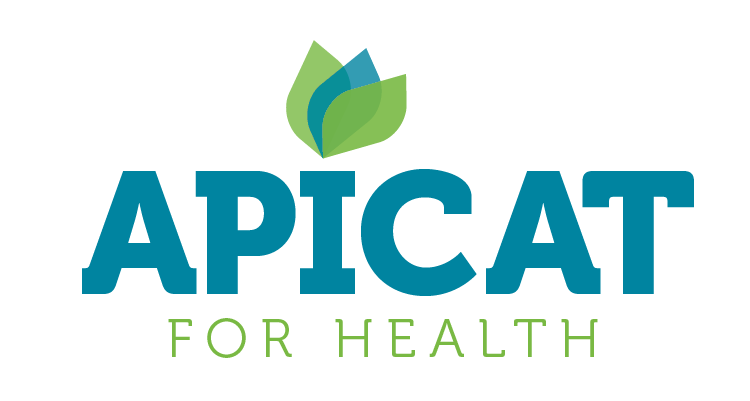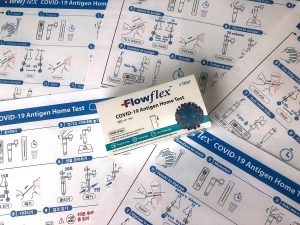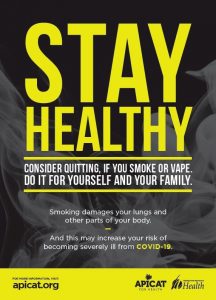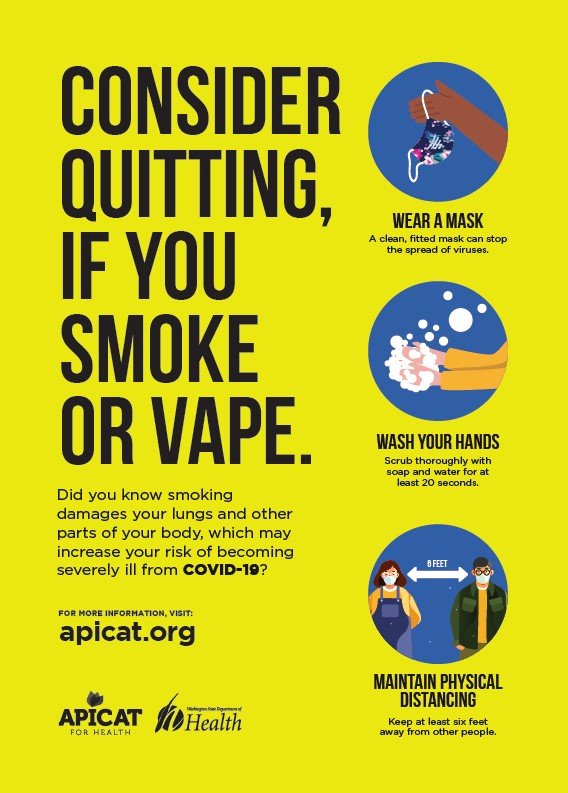Flowflex Covid-19 Antigen Home Test Quick Reference Instructions Now Available in Korean, Samoan, Tongan & Vietnamese
APICAT has worked with our coalition partners to translate the Flowflex Covid-19 Home Test Quick Reference Instructions into Korean, Samoan, Tongan, Vietnamese. Now available for download with these links:
How the COVID-19 pandemic has affected the AANHPI community
• AANHPIs are on the front line of the pandemic — Asian American, Native Hawaiian, and Pacific Islanders make up a significant portion of front-line workers who are exposed to COVID-19. The latest data on cases by state and race/ethnicity show that 4 of the 10 states with the highest number of COVID-10 cases are also among the top 10 states with largest number of Asian Americans, Native Hawaiians, and Pacific Islanders per capita, Equitable Growth reports.
• Native Hawaiians and Pacific Islanders face COVID-19 disparities — Pacific Islanders living in the United States are being hospitalized with COVID-19 at up to 10 times the rate of some other racial groups. The Tacoma-Pierce County Health Department reported that Native Hawaiian and Pacific Islanders are facing a COVID-19 diagnosis rate that is 4.5 times higher than that of the white population. Community leaders have been communicating with the department to identify contributing factors and solutions to curb the disparity.
• Filipino American nurses are hard hit by COVID-19 — More than 1,700 health care workers have died from the virus, according to a September report from National Nurses United (NNU). Of those, 67 of the 213 nurses who’d died were Filipino Americans, making them the largest non-white ethnic group of nurses to die from the virus.
• Asian American deaths see significant rise — New data shows that Asian Americans join Black and Hispanic communities as the hardest hit, with deaths in these groups up 30 percent compared with the average over the last five years. Asian American deaths saw a 35% increase, second-highest behind Hispanic Americans, Associated Press reported.
• A need for disaggregated data — The total effects of COVID-19 on the Asian American and Pacific Islander is difficult to calculate due to data not being disaggregated. In many counties in the United States, data isn’t collected for cause of death by race. Localized and disaggregated data, however, shows that Asian Americans and Pacific Islanders have been hard hit by the pandemic. For example, Asian Americans account for almost half of COVID-19 deaths in San Francisco. And in California and Hawai‘i, Pacific Islanders are shown to have the highest death rate of any racial group, according to The Marshall Project.
• Rise in discrimination against Asian Americans linked to COVID-19 — 58% of Asian American adults now say it is more common for people to express racist or racially insensitive views about Asian Americans than before the COVID-19 outbreak. For more information, read the One Nation “AAPIs Rising to Fight Dual Pandemics Covid-19 and Racism” report..
APICAT reminds AAPI communities about COVID-19 risks for vapers and smokers
As we all do our part to stay safe and stay healthy, the Asian Pacific Islander Coalition Advocating Together for Health (APICAT) is letting our communities know that people who smoke or vape are at high-risk for severe illness from COVID-19.
Vaping and smoking can harm overall lung health, weaken the immune system, and increase the risk of infectious diseases. Tobacco companies’ targeting of Asian American and Pacific Islander (AAPI) communities combined with COVID-19 risks as a virus that attacks the lungs brings a sense of urgency for healthy community advocates.
APICAT’s Elaine Ishihara said: “The industry wants us to believe that vaping is a better alternative to smoking cigarettes. However, in Washington State there have been 27 cases of vaping related lung injury since April 2019. Five of these cases are under the age of 20. Studies are showing that e-cigarettes both contain and emit a number of potentially toxic substances which can damage the lungs. And as we are seeing with the COVID-19 pandemic, anything that can compromise your lungs, such as smoking and vaping, increases the risk of having more serious symptoms.”
AAPI communities are a key market for tobacco and vaping companies, in large part because smoking prevalence in most Asian countries is considerably higher than in the United States. Over 15,000 Asian Americans and Pacific Islanders die in the United States each year from tobacco related illnesses.
The American Lung Association says that smoking and vaping can cause damage to the lungs, leaving lung tissue inflamed, fragile, and susceptible to infection. Tobacco is also proven to harm the immune system and airway lining cells that defend against viruses like COVID-19.
“We have long known that quitting smoking is the single best thing you can do for your health. And it’s especially important now,” said American Lung Association Chief Medical Officer Dr. Albert Rizzo in a statement. “Quitting smoking and vaping can better equip your body to fight off this disease and reduce the chance of the most severe symptoms [of COVID-19].”
The Center for Disease Control and Prevention (CDC) said that current data points to a disproportionate burden of illness and death among racial and ethnic minority groups as a result of COVID-19. The CDC also says that the three leading causes of death among APIs are cancer, heart disease, and stroke, all of which can be caused by cigarette smoking.
“The global COVID-19 pandemic disproportionately impacts vulnerable communities,” Ishihara said. “We need to protect the health of our AAPI communities, particularly our youth who are increasingly using vaping products.”
According to the Washington State Healthy Youth Survey, one in four high school seniors vape. 10th grade use has increased from 13 percent in 2016 to 21 percent in 2018. And only a third of these 10th graders thought vaping was harmful.
Vaping also disproportionately affects AAPI communities. Disaggregated data of vaping from the National Youth Tobacco surveys shows that 22.7 percent of Native Hawaiian and other Pacific Islanders, 21.4 percent of Japanese, and 20 percent of Khmer and Cambodian students vape, compared to 15.3 percent of white students.
“During and after this COVID-19 pandemic, we want all of our communities, especially our youth, to know the risks of vaping and smoking,” Ishihara said. “We need to do all we can do to stay healthy.”
Coronavirus (COVID-19)
Information
• Washington State Coronavirus Response (COVID-19)
• Washington State Department of Health – Novel Coronavirus Outbreak 2020 (COVID-19)
• Centers for Disease Control and Prevention – Coronavirus (COVID-19)
• King County COVID 19 response page
The flu shot helps protect you and others from getting sick. Take extra care during COVID-19 to stay healthy. For information on how to get your flu shot, click here.
Resources
• Neighborhood House has a very comprehensive and updated list of services and resources available during the pandemic. They also have a hotline to call to help you learn more about available services at 206-923-6480.
• International Community Health services is offering free drive-thru COVID-19 testing.
• The Asian Smokers Quitline offers telephone counseling services in Chinese (Cantonese/Mandarin), Korean, and Vietnamese languages. Each language has a direct call-in number. Chinese (Cantonese/Mandarin) 1.800.838.8917, Korean 1.800.556.5564, Vietnamese 1.800.778.8440.
Information about the Washington Tobacco quitline (1.800.784.8669) can be found here.
• The Washington Department of Health’s Tobacco and Vapor Control website has information and resources for individuals, families, and partners in prevention.
• Parenting for Lifelong Health has a parenting resource amid COVID 19 pandemic (translated in 70 languages).
• Helping Link/Một Dấu Nối has been providing services through a bilingually staffed phone bank at 206-568-5160. The phone bank is also a way for the Vietnamese community to get help with in-language public health recommendations, unemployment resources, referrals to food and rental assistance, access to transportation and stable housing.
Bias/hate incident reporting
• Asian Pacific Policy and Planning Council has an incident reporting center and forms translated in multiple languages which can be found online here.
• Seattle Police Department has information on how to report a hate crime here.
• You can report incidents with the Seattle Office for Civil Rights online here.
Download Stay Healthy posters and postcards:




